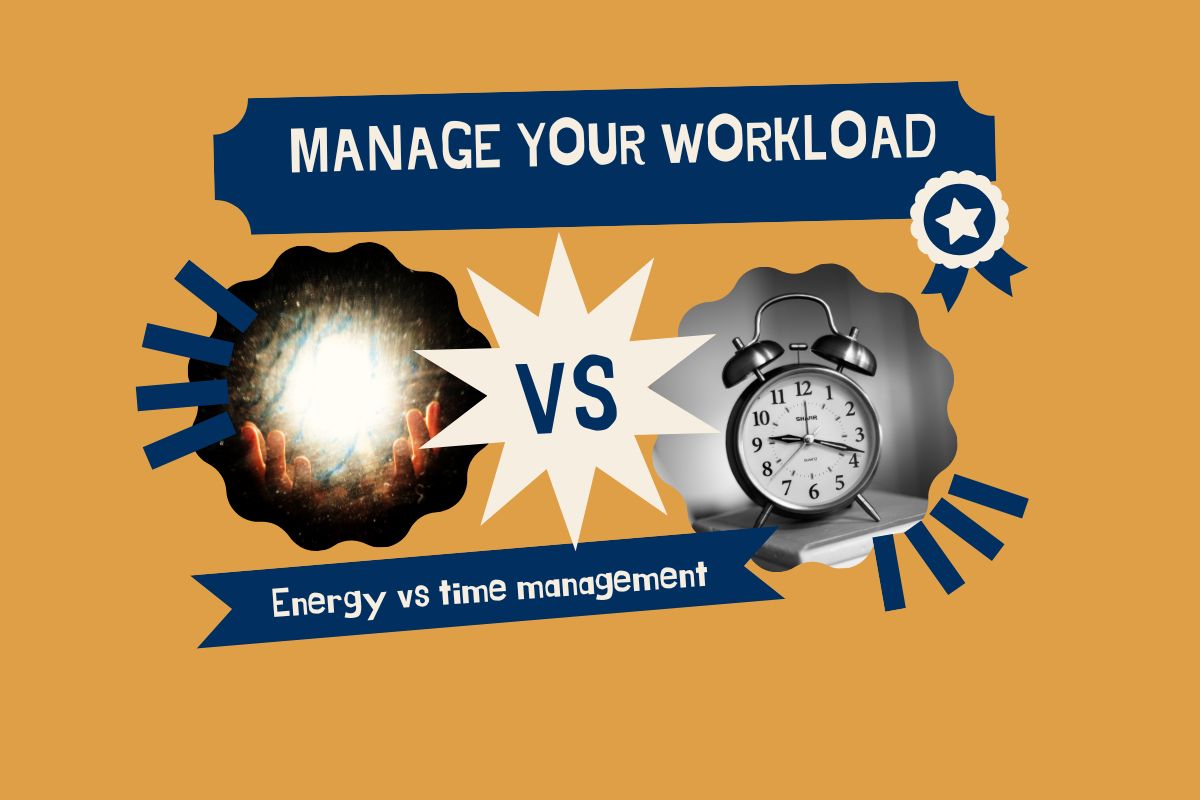
You’ve got work to do. Do you have the necessary time to do it? Do you have the mental and physical energy to do it? In this post I reflect on a recent workshop I attended exploring ‘energy management’ as an alternative to ‘time management’.
I have an article on time management here on the blog. Admittedly, it is less of an article and more like a catalogue (long boring list?) of time management advice that I’ve come across in my travels.
Most of that advice I tend to find in the popular psychology ‘literature’ nowadays – podcasts, books, self-help. Do a Google Scholar search for ‘time management’ and limit the results to the last 10 years and you really don’t get much at all. It seems the scientists have lost interest in the concept or (more likely) the science has shifted to more specific learning, productivity and wellbeing strategies.
But the term is still widely used and most us do need to learn strategies to manage our time. It is an uncomfortable fact that there are more things to do than time to do them. A fact explored mindfully in Oliver Burkeman’s Four Thousand Weeks: Time Management for Mortals. A fact that I encounter regularly when the number of projects I want to do, exceeds the hours in the day to do them.
So it was with considerable interest that I recently attended a staff professional development session on Workload and Energy Balance. It was by psychologist Fairlie Morgan on behalf of Corporate Wellbeing Hub
You can actually watch the session here (stick it on 1.5 speed if you need to get through it quicker):
Right at the beginning of the session, Fairlie asked those in attendance to do a quick poll and rate the extent to which they felt they had control or influence over either time or energy?
The results of that poll suggested that people felt they had more control and influence on energy levels versus time. Essentially, it is easier to take actions to conserve, replenish or leverage energy reserves than it is to magically create more hours in the day.
Fairlie went on to say that ‘time management’ was a popular concept 50 or 60 years ago, but that in the last 20 years or so, at least in organisational psychology, energy management has been the focus.
Energy management is the new time management??!!
After reflecting on the workshop, I came to the view (at least for now) that they are related but not the same. Energy management doesn’t replace time management, but it expands nicely the conversation we can have around managing our workloads.
Time management feels more technical or mechanical to me. It is digging around at the level of the actual tasks we have to do and how we allocate them to the hours of the day. It is about prioritising, managing task lists and calendars. It is about tackling procrastination.
Energy management is more about the practices that get us (and sustain us) in the best physical and psychological shape possible to confront our workloads. It is about holistic self-care that sets the scene for us to manage our time wisely.
Ideally you want both.
If your energy levels are good and you think your workload challenges relate more to how you manage your time, then start with some practical tips from my article or other online productivity tips (there are heaps).
But if you feel like your workload challenges relate more to not being in good physical and psychological health, then energy management strategies might be a better focus.
So how do you get started with energy management strategies?
Fairlie provided an Energy Management Checklist (workplace) that might get you thinking about the different body, mind and spirit activities that optimise our work capacity. The checklist talks about ‘work’ but you could easily replace this with study. You tick how many energy management drains exist in your life. The fewer the ticks the better.
Each question is worded in a way that then provides clues as to the positive strategies that might help. For example:
“I don’t have enough time with my family and loved ones, and when I’m with them, I’m not always really with them.” is an invitation to carving out more mindful time with family.
“I frequently skip breakfast, or I settle for something that isn’t nutritious.” is an invitation to make positive changes to one’s diet.
ENERGY MANAGEMENT CHECKLIST PDF (WORKPLACE)
If you want more self-care strategies, remember we have a ‘mega guide‘ of different kinds of strategies that would serve similar purposes.
Also, if you read this in time, we are running a Be Well Plan in Semester 2 of 2023 which teaches the kinds of strategies we can use to look after our psychological health.

